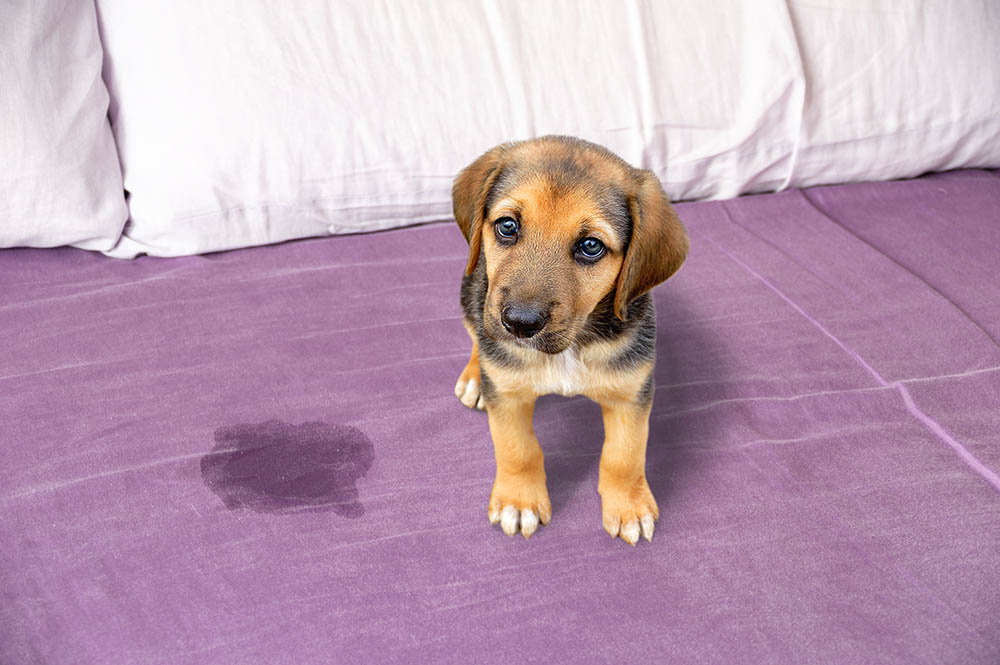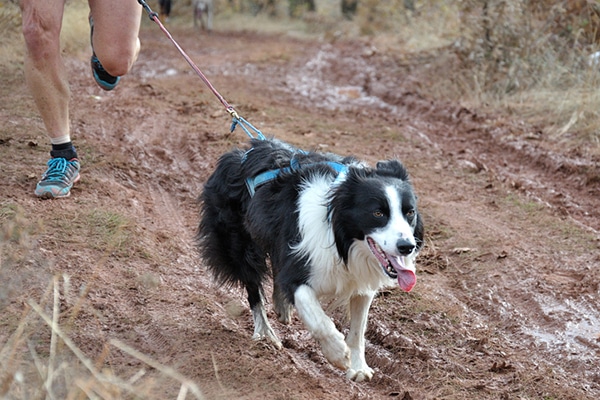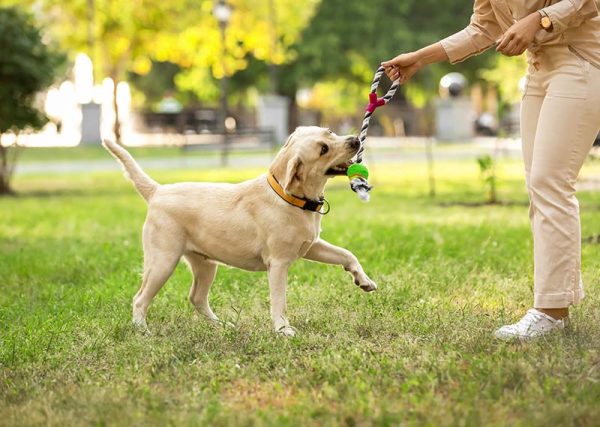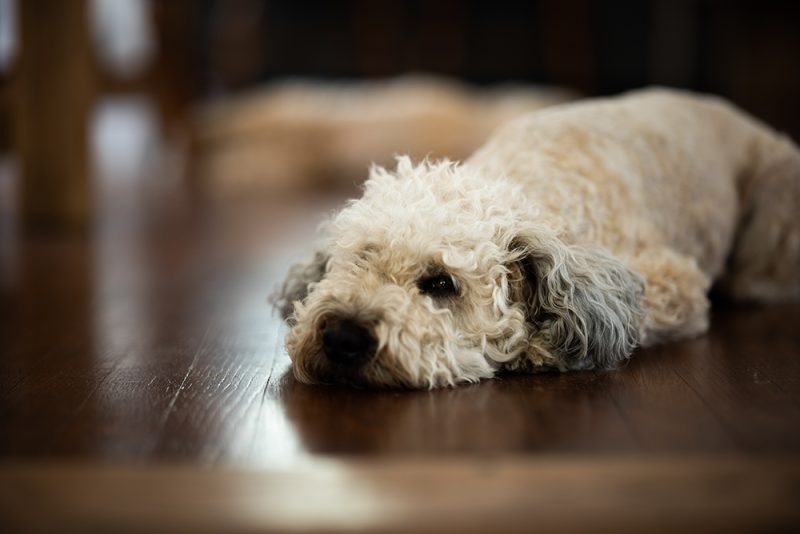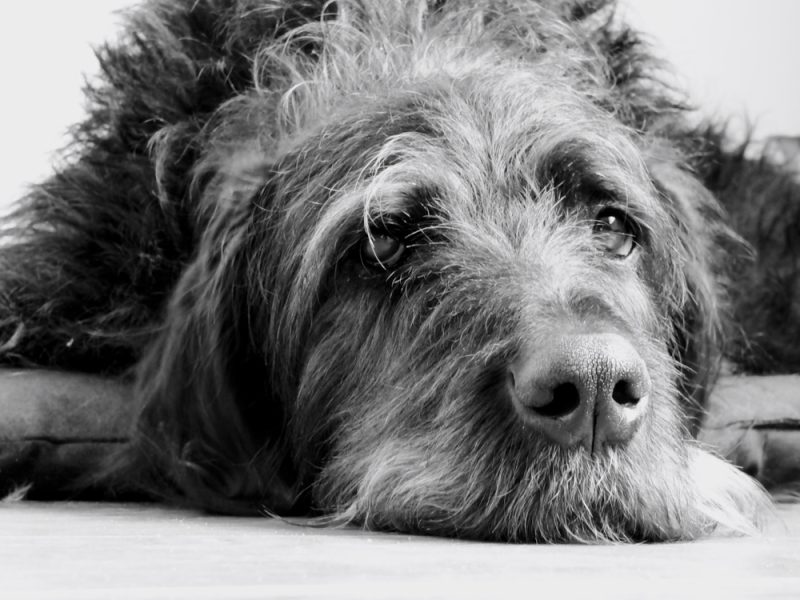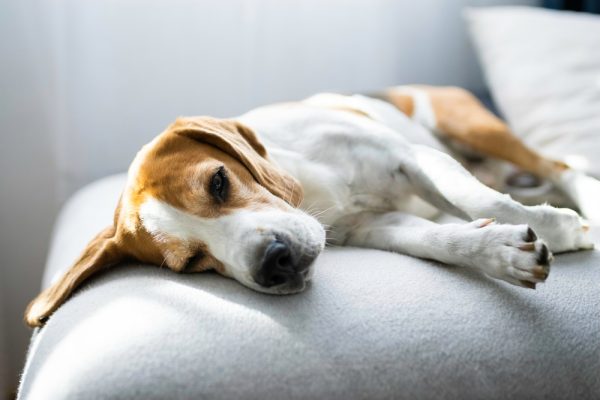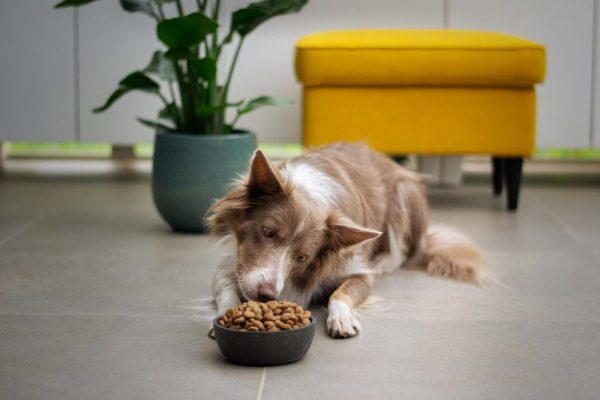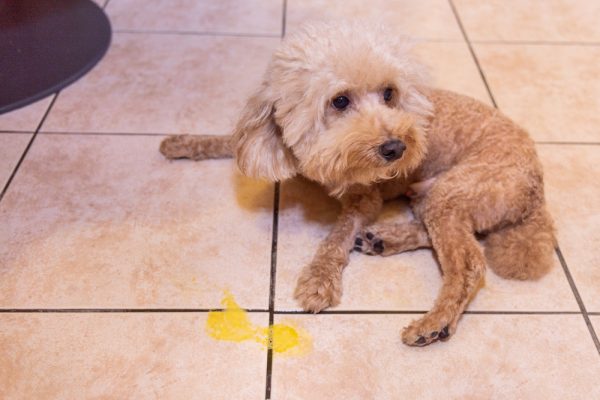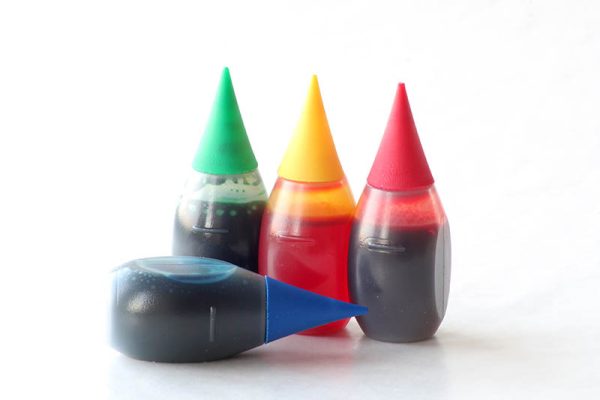It can be confusing and unexpected for your fully housetrained dog to start having accidents in the house. It’s especially unsettling if your dog is peeing on the bed, whether they are asleep or awake when it happens. Most dogs will avoid having accidents in the places where they rest and are most comfortable, so it’s very out of the ordinary for a dog to start peeing on the bed.
There are multiple reasons that a dog may start peeing on the bed, and although this is not a normal issue, it’s not an uncommon problem, especially in older female dogs. To understand why this might be happening, you need to understand some of the potential causes of this behavior. Above all else, if your dog starts peeing on the bed, a vet visit is to rule out medical issues.

The Importance of Effective Cleaning
If you haven’t properly cleaned your bed after your dog had an accident, there is a good chance they’ll repeat this behavior in the same spot. It can be confusing for a dog if they can smell the presence of urine on a surface. If you don’t properly clean the urine from the bed, your dog may be able to continue smelling it, leading to them getting confused and thinking that it’s an appropriate place to urinate. An enzyme-based cleaning product, will help to eliminate any remaining urine odors that may cause your dog to continue peeing in the same place.
Our Favorite Cleaner Hepper Advanced Bio-Enzyme Pet Stain & Odor Eliminator Spray is our favorite all-purpose cleaner for pet messes. It permanently lifts the very worst stains and odors, making clean-up and accident prevention a breeze. Hepper offers a 100% guarantee, which is a great bonus! Learn more about it here. At Dogster, we’ve admired Hepper for many years, and decided to take a controlling ownership interest so that we could benefit from the outstanding products of this cool pet company!
Rating
Image
Product
Details
Best Enzymatic Cleaner

Hepper Advanced Bio-Enzyme Pet Stain & Odor Eliminator Spray
Check Price

The 8 Reasons Your Female Dog Might Pee on the Bed
1. Urinary Incontinence
Urinary incontinence is the involuntary leakage of urine. Urine may leak all of the time, or more commonly when dogs are relaxed and sleeping on their bed. There are lots of different issues that can cause urinary incontinence in dogs. In younger dogs, congenital/developmental problems such as ectopic ureters are more likely. In adult female dogs Urethral Sphincter Mechanism Incompetence (USMI) is the most common cause of incontinence, especially in larger breeds. USMI occurs when the sphincter that holds the urine in the bladder becomes weak and leaky. USMI affects up to 20% of all neutered females and 30% of neutered females weighing over 20kg. Other causes of urinary incontinence include spinal cord injuries and other neurological damage.
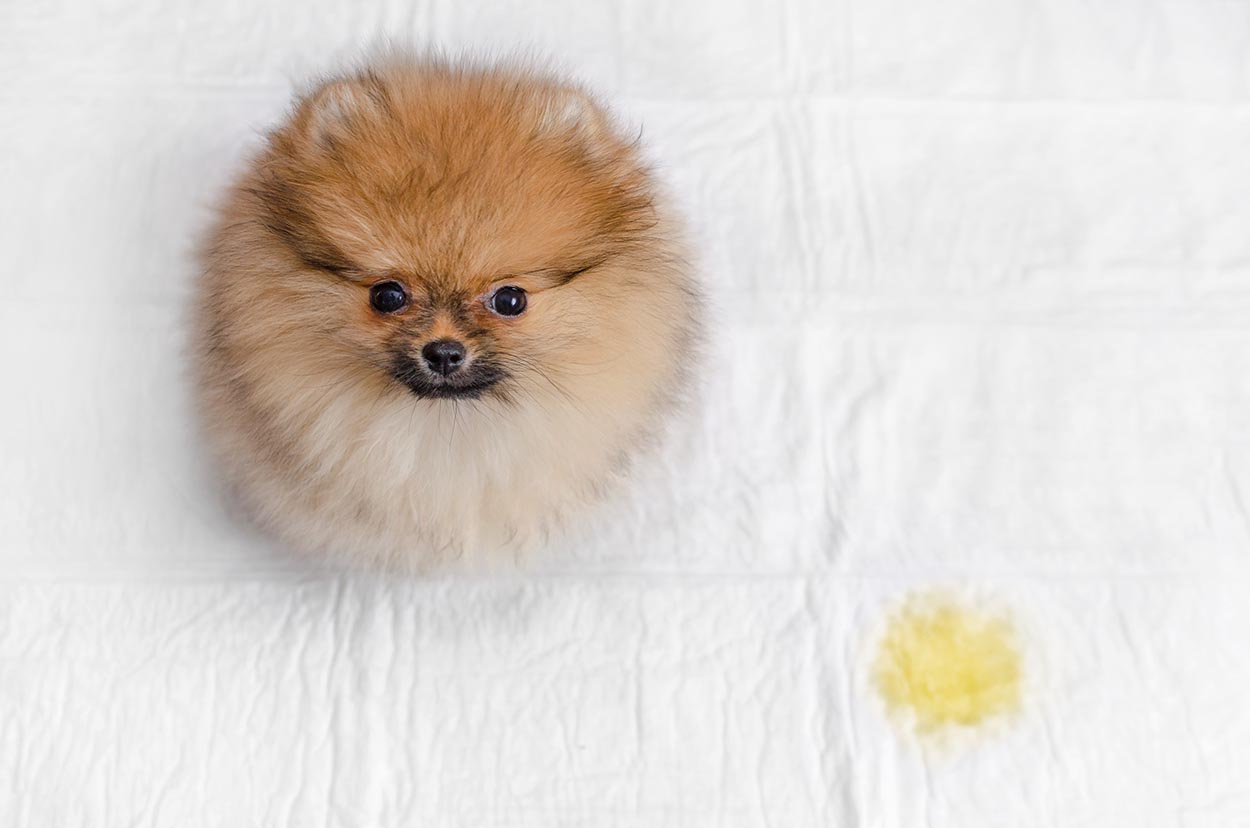
2. Urinary Tract Infection (UTI)
UTIs are a relatively common condition in female dogs of all ages and breeds. Some dogs with a UTI may start having accidents in the house, usually due to the irritation of the bladder that causes them to constantly feel like they need to urinate. You may see blood in the urine and an increased frequency in urination. UTIs are typically easy to diagnose and treat by a veterinarian but can cause complications if left untreated.
If you’re concerned about your pet’s well-being, we recommend you contact a veterinarian.
If you need to speak with a vet but can't get to one, head over to PangoVet. It's our online service where you can talk to a vet online and get the advice you need for your pet — all at an affordable price!
3. Bladder Stones
Bladder stones occur when specific minerals build up in the urine inside of a dog’s bladder, eventually forming stones. These stones come in many shapes and sizes. Dogs with bladder stones are often uncomfortable when they urinate and may pee little and often resulting in accidents in the house. Your vet will usually diagnose bladder stones via an X-ray or ultrasound of your dog’s bladder. Depending on the type and severity of bladder stones, some can be dissolved with a special diet, while others will need to be surgically removed.
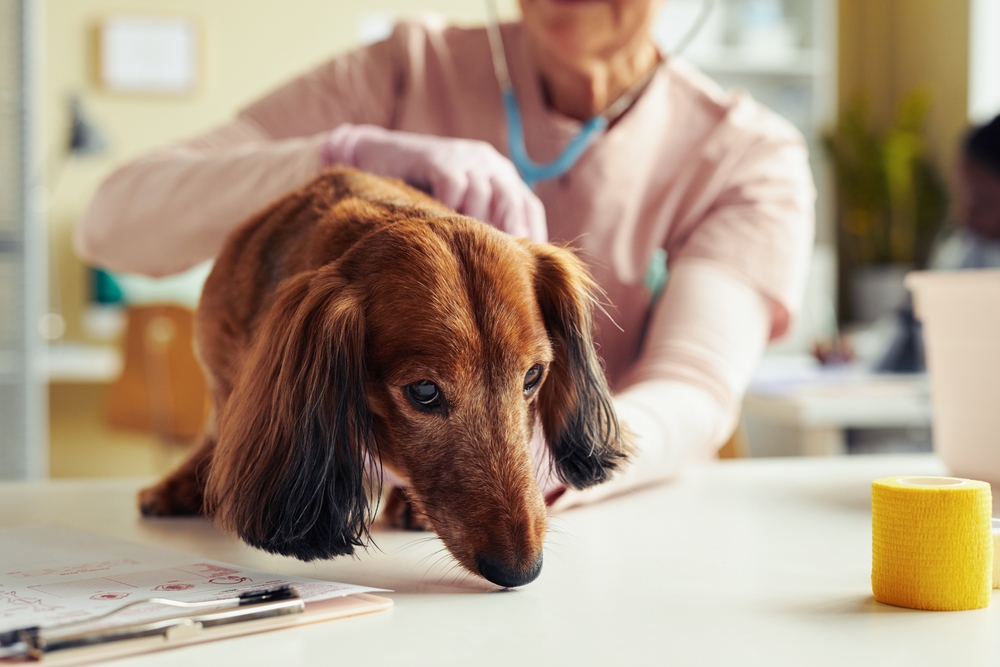
4. Bladder Tumors
Like bladder stones, tumors in the bladder can create signs that are similar to those of a UTI. If your dog has a bladder tumor, then they will likely experience difficulty urinating, urinating indoors, and bloody urine. Bladder tumors may be able to be treated with surgery, chemotherapy, radiation, or a combination of these options. Unfortunately some tumors may be too advanced for treatment.
5. Estrus
Estrus, also known as being in heat, is the time during a female dog’s estrous cycle when she is able to become pregnant. During this time, her hormones shift as her body prepares for the possibility of pregnancy. Sometimes, these hormonal shifts will cause a female dog to urinate in inappropriate places as part of marking her territory and alerting male dogs that she is receptive to mating.
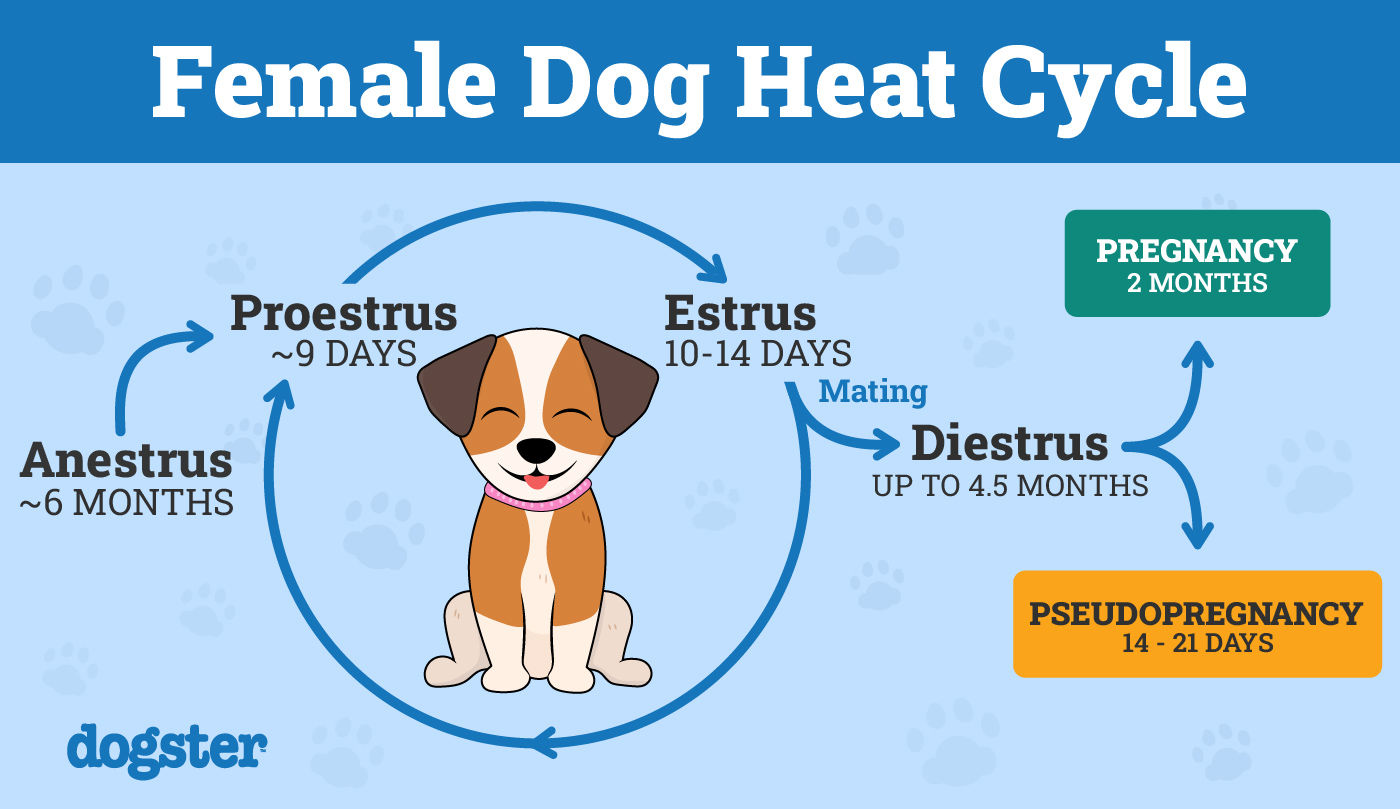
6. Pregnancy
When a dog is pregnant, her hormones shift, and her reproductive organs begin to grow and change as the pups develop. As this happens, some dogs may experience an increased need to urinate and may urinate in inappropriate places.
7. Other Medical Issues
Conditions that cause a dog to drink more, such as kidney disease, diabetes and Cushing’s disease, also cause an increase in the amount of urine produced. This leads to dogs needing to pee more often which can lead to accidents in the house and on their bed. Some prescription medications like steroids and diuretics can also increase thirst and urination.
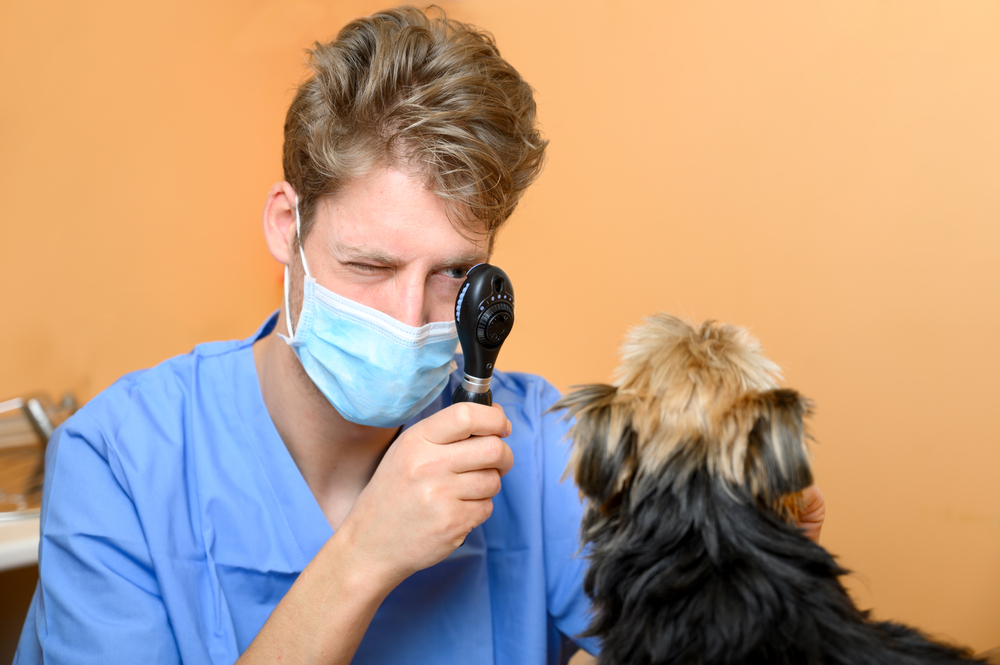
8. Behavioral Issues
There are multiple reasons that your dog may begin urinating on the bed for behavioral reasons. Stress and anxiety are common reasons, and this can be related to short-term or long-term problems. For example, a dog that is afraid of fireworks may have an accident in the house while they’re being set off, but if you’ve recently brought home a new baby and your dog is struggling to adjust, they may also begin to have accidents in the house.
Shifts in routine or major environmental changes can be difficult for dogs to adjust to, which can lead to behavioral problems, including inappropriate urination.

How Can You Prevent Your Dog From Peeing on the Bed?
The best thing you can do to stop your dog from peeing on the bed is to identify the cause of her inappropriate urination in the first place. The first port of call should be your veterinarian to rule in or out medical concerns. If after having the all clear from your vet you suspect that your dog’s inappropriate urination is strictly behavioral, then determining the cause of the behavior and finding ways to make your dog feel safe and comfortable will help you stop it from continuing to happen. You may need to contact a qualified veterinary behaviorist to help you with this.

In Conclusion
The best course of action, when your dog starts showing inappropriate urination, is always going to be a vet visit. Your vet will be able to expertly guide you in identifying the cause of the issue and getting your dog on an appropriate treatment plan.
If your female dog starts urinating on the bed, try to note all the details you can to give to the vet. Was she awake or asleep? Was the urine clear, bloody, cloudy, or with visible sediment in it? Did you notice an unusual odor in the urine? Did your dog seem aware of what had happened? Is she drinking more than usual or showing any other signs? All of these details will help your vet identify the cause. Check with the veterinary clinic if you should bring a sample of your dog’s urine to the appointment.
Featured Image Credit: cunaplus, Shutterstock
